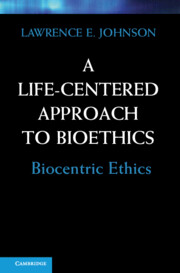Book contents
- Frontmatter
- Contents
- 1 Introduction
- Part I Backgrounds
- Part II Life, Death, and Bioethics
- 6 Being Alive
- 7 Being Healthy
- 8 Health and Virtue
- 9 Death and Life
- 10 Drawing Lines with Death
- 11 Double Effect
- 12 Concerning Abortion
- 13 The Gene, Part I
- 14 The Gene, Part II
- 15 Ethics and Biomedical Research
- 16 Bioethics Seen in an Eastern Light
- 17 Toward a Wider View
- Bibliography
- Index
8 - Health and Virtue
Published online by Cambridge University Press: 05 June 2012
- Frontmatter
- Contents
- 1 Introduction
- Part I Backgrounds
- Part II Life, Death, and Bioethics
- 6 Being Alive
- 7 Being Healthy
- 8 Health and Virtue
- 9 Death and Life
- 10 Drawing Lines with Death
- 11 Double Effect
- 12 Concerning Abortion
- 13 The Gene, Part I
- 14 The Gene, Part II
- 15 Ethics and Biomedical Research
- 16 Bioethics Seen in an Eastern Light
- 17 Toward a Wider View
- Bibliography
- Index
Summary
It will be evident by now that, in my conceptions, it is a truism that health is good for us. (Indeed, who would deny that it is good for us to live a life that is as healthy as possible?) Living a life that is healthy in the fullest and most complete sense is what I take our personal good to be. As we have observed, health in the straightforward physical sense is only part of the story. It is very much a cliché that a person may suffer from poor physical health yet live a better life, all told, than another person with very good physical health. I take the former person to be the one with, overall, the better health. Nor is the healthy life, the good life, merely one of pleasures or having gratified desires or other positive mental states, though all of these things can contribute greatly to a good life. Life is far broader than that, and deeper, and a good life is not just a matter of having more or less of some particular thing. Broadly speaking, having (being) a good life is having (being) a life that is coherently and effectively functioning as the sort of life that that life happens to be. It is good or healthy for us to develop in accordance with our own particular character, and to have our various aspects be well integrated and functioning well together. We are in ill health to some degree when we are not in such a condition, be it a departure from a fully healthy condition that is trivial and unnoticeable, or be it cancer or neuroses. These things, in their varying degree, are matters of departures from our appropriate homeorhetic balance.
There are ethical implications that flow from such a conception of our good. This is true in terms of our dealings with others and also in terms of living our own life. A good understanding of what constitutes living well is vital for treating others and our own selves well. Obviously, if we are to respect the good of others, having a clearer conception of the good of others will facilitate our doing so. Unless we have some real insight into the nature, needs, and vulnerabilities of others, our capacity to frame (or even to follow) appropriate laws, rules, and guidelines must be severely restricted. Appropriate rules can be very useful but for the best results in respecting the good of others, we need insight into what their good is. If we are to respect others for what they individually are, then we must take into account their individual needs and character, and general rules for behavior toward others can only carry us so far. Moreover, unless we had some insight and empathy, our following of the rules would be of only a minimally moral character, if that. Following even the best of rules out of mere convenience or self-interest is not the most moral of motivations. Nor is mere rule following an approach sufficiently sensitive to bring about the best possible results in our dealings with others, even when our intentions are good. In the conception of our good as health, we may find some amount of guidance in how to care about and for others. We also may come to a better understanding of why it is well for ourselves to do so – and, more broadly, how to live well.
- Type
- Chapter
- Information
- A Life-Centered Approach to BioethicsBiocentric Ethics, pp. 166 - 187Publisher: Cambridge University PressPrint publication year: 2010



